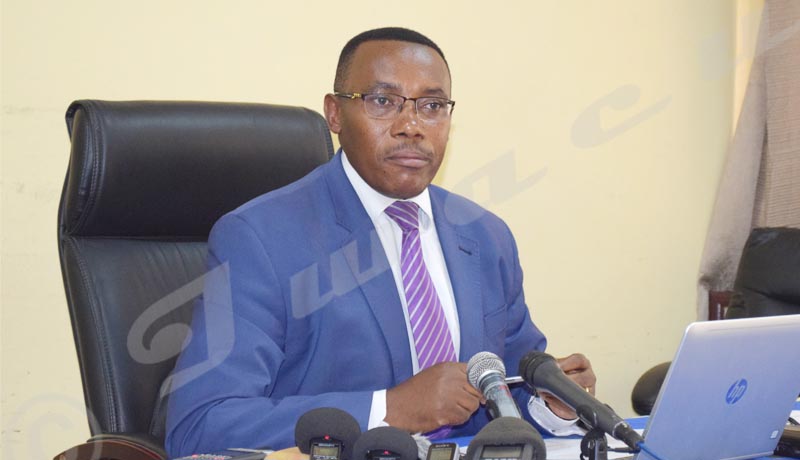At a press conference held on August 7th, the Burundi Minister of Public Health has said malaria cases have not yet reached the rate to be declared as an epidemic in Burundi.

Thaddée Ndikumana: “The national situation has not reached the rate where malaria can be declared as an epidemic
“Over 4, 3 million people have suffered from malaria in the period of six months of 2019,” says Thaddée Ndikumana, Burundi Minister of Public Health.
Mr. Ndikumana says the ministry declared malaria as an epidemic in 2017 when the number of people suffering from the disease went over 4, 9 million in the same period of six months.
The number of malaria victims in 2019 has decreased compared to 2017.
“1,400 cases of malaria victims have been recorded in 2019 whereas there were 4,500 victims in 2017 within the period of six months,” says Mr. Ndikumana.
He says the northern and eastern provinces are the most affected by the disease and adds that the national situation has not reached the rate where malaria can be declared as an epidemic.
“The reasons for the increasing number of people suffering from malaria are among others the climate change, rice farming and fish breeding,” says the Minister of public health. The number of mosquitoes keeps increasing in some areas, he adds.
He says the ministry has sent 360 medical staffs to different health districts so they can help in detecting malaria cases and give free medicines to people.
Mr. Ndikumana says the ministry of public health plans to give mosquito nets to people before the upcoming rainy season.
The treatment of malaria will shift from Amodiaquin-artesinate medicine to Coartem which is more effective, he adds.
He reminds people that malaria is treated for free. “Only sick people who are hospitalized can pay for treatment,” he says.
The recent report by the United Nations Office for the Coordination of Humanitarian Affairs-OCHA says 5, 7 million of people suffered from malaria from January to mid-July 2019.
According to the same report, over 1800 people died of malaria and hospitals were reported to have high numbers of people suffering from the disease.



















 IWACU Open Data
IWACU Open Data

